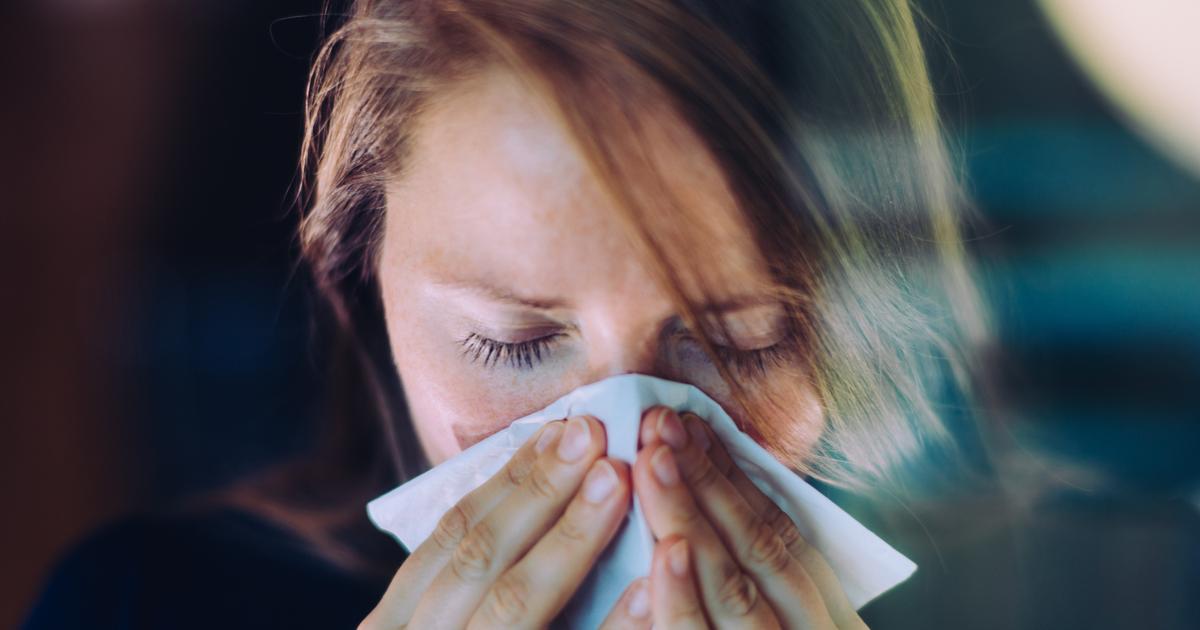The observation is the same every autumn and every winter: when the level of the thermostat drops, that of flu-like states rises again until spring, with its share of runny nose, scratchy throat, intense cough.
We often say that we "catch cold", and we don't think so.
A new US study published Tuesday, December 6 in the journal
The Journal of Allergy and Clinical Immunology
, shows that cold air entering the body damages the immune response, specifically in the nasal area, making people more susceptible to catch a cold.
“By convention, cold and flu season was thought to occur in the cooler months because people are more often cooped up indoors, where airborne viruses can spread more easily. , says
CNN
, Dr. Benjamin Bleier, director of otolaryngology research at the Mass Eye and Ear Hospital (Boston) and lead author of the study.
These findings show that the cold actually halves the ability of our immune system to fight respiratory infections.”
Read alsoWhy are some people more cautious than others?
In video, to have a healthy brain, here is the diet to follow
A weakened defense mechanism under minus 5°C
Along with the mouth, the nose is in fact the main channel of infection, because the microbe is inhaled or deposited there with the hands.
In 2018, American researchers had already discovered that there is an innate immune response that is triggered when a bacterium enters the nose.
A kind of defense mechanism.
Put simply, to protect themselves from the invader, cells at the front of the nose detect signs of the bacteria entering it and respond by producing billions of small, fluid-filled sacs called extracellular vesicles (or EVs).
In addition, these EVs are reinforced by protective proteins with antimicrobial properties.
"The best analogy is that of the hornet's nest,"
Mansoor Amiji, a professor at Northeastern University and co-author of this study , told
AFP .
Like hornets defending a nest when attacked, VEs fly in swarms to attach to invaders and kill them.”
The cold halves the ability of our immune system to fight respiratory infections
Dr. Benjamin Bleier, lead author of the study
To support their investigations, the research team has carried out additional tests in recent months to seek to understand whether EVs work in the presence of a virus, and if so, whether their response is affected by the outside temperature.
To do this, they took nasal mucosa from patients undergoing surgery to remove their polyps, or healthy volunteers, and put it in contact with a substance that reproduced a viral infection (two common rhinoviruses and a coronavirus, not -Covid).
The samples were divided into two groups and exposed to different temperatures.
Below 5°C, the researchers observed that the immune defense system of EVs is less effective against common winter viruses.
Their experiment demonstrates that exposure to this temperature level kills nearly 50% of the billions of virus and bacteria-fighting cells in the nostrils,
CNN
reports .
Not only do masks protect you from directly inhaling viruses, but it's also like wearing a sweater over your nose.
Dr. Benjamin Bleier, director of otolaryngology research at Mass Eye and Ear
Towards a new treatment?
“There has never been a very compelling reason why there is a clear increase in viral infectivity during the colder months.
This is the first quantitatively and biologically plausible explanation that has been developed, Dr. Benjamin Bleier said in a statement.
According to Mansoor Amiji, co-author of the study, this work could make it possible to develop treatments to stimulate the natural production of VE, in order to be able to better fight colds, or even the flu and Covid-19.
"This is a field of research that interests us enormously, and we will undoubtedly continue on this path," he told
AFP
.
While waiting for more advanced studies, one wonders how to protect oneself well from the "cold snap".
With a mask, mentions Dr. Benjamin Bleier in the columns of
CNN
.
It protects against the inhalation of viruses... and keeps you warm.

